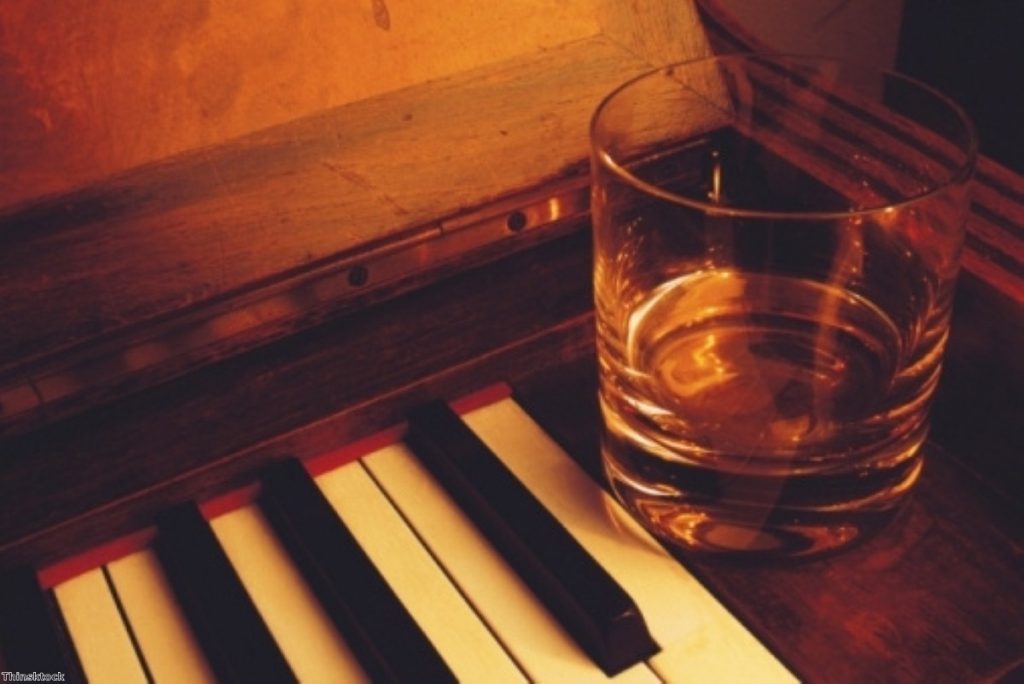One more for the road: Whisky industry fears prospect of Scottish independence
For Scotland, whisky is serious business. Scotch whisky exports are worth four times the country's food exports. The tipple represents a staggering 85% of the country's food and drink exports, bringing in £4.3 billion a year.
Whisky is a very strange product. It takes years to mature to a state where you can sell it. It demands long-term thinking, with investment decisions often only seeing results after a decade or two. This is not an industry for the impatient. Tellingly, former chartered accountants are overrepresented at its upper levels.
So it should not be a surprise that it's wary of massive constitutional changes, such as that proposed by Alex Salmond in the Scottish independence referendum. The risks are substantial.
James Espey, who has an OBE for services to the whisky industry, puts it succinctly when I call him. "Leave well alone," he advises.


So it was unsurprising when whisky producers featured so prominently in a letter of 130 business leaders calling on Scottish voters to say 'No' to independence. While international firms like Diageo kept out of it, many Scotland-based firms signed up.
"We're an independent, family-owned business," Mike Younger, finance director of Ian Macleod Distillers, says. "We can't locate anywhere else. We can't shift our business. We'd have to face up to the impact of whatever the fallout would be of a 'Yes' vote. The risks are significant and all on the downside. No-one's told me what the upside is."
If the industry is nervous of change, it may be because the status quo is working out so well for it. Since Hollywood popularised the drink internationally after World War Two as a sign of taste and masculinity, it has blossomed into the world's number one spirit in terms of prestige and demand. It now employs 35,000 people and is Scotland’s third biggest industry, accounting for a quarter of Britain's entire food and drink exports.
The international market, where nine out of ten bottles are sold, is a major part of the nervousness around calls for independence, especially if Scotland loses its EU negotiating position in emerging markets.
Gavin Hewitt, former chief executive of the Scotch Whisky Association, believes Alex Salmond's assessment of the timetable for a Scottish entry into the EU is extremely generous, but even then Scotland would be on its own until 2018.
"The Scotch whisky industry has benefited massively from the single market and the EU's trade clout with other countries," he says.

"If it's outside, it cannot benefit from either. There'll be no support from Brussels in trade with third party markets. Take India, for example. That's a big market for Scotch whisky. If Scotland isn't in the EU it can't and won't benefit from the terms of that free trade agreement. Whisky will be discriminated against in that market."
With many distilleries importing grain from EU countries to make the whisky, the production process could also become considerably more expensive.
Scotch whisky producers are also distinctly queasy about the debate over currency. They fear that if Westminster follows through on its threats and refuses to enter into a currency union with Scotland, they'll face spiralling financial costs.
"The UK is the third largest Scotch market in the world," Hewitt says. "The costs of trading with our third largest market will increase. If you're not inside the currency union – and we won't be – our interest rates will be much higher. The rates at which the Scottish government borrows will determine interest rates. That will determine the cost of investment. And something we have a huge investment in is the whisky sitting in warehouses for twenty years."
If Scotland decides to go with a new currency, that would also entail costs to the industry.

"There's completely uncertainty about currency, but in the long run we'd probably end up with a different one," Younger says. "There's a cost to changing. We sell most Scotch whisky in sterling. If Scotland had its own currency not linked to anything else we'd be forced to take a much higher risk margin."
Scotch whisky would also lose the pre-existing network of British embassies, who heavily promote the drink overseas. "Presently through the UK we have access to about 180 trade missions," Younger says. "The Scottish government is talking about setting up about 70. We sell to a lot more countries than the 70 they talk about. I think they've underestimated the work and time it takes to set up credible missions."
Without the stamp of authenticity from HMRC, there are also fears that consumers in other markets won't trust in the contents of the bottle enough to plump down the extra cash for Scotch. The Scottish government is going to set up its own revenue and customs body, but may be some time before it gains a reputation which would protect the product overseas.
Producers worry that moves in Scotland for minimum pricing will also provide other governments with the excuse to introduce higher tariffs to protect their domestic market.
Many of these fears could potentially have been calmed by a focus on the issue from Salmond, but the first minister has not managed to get them onside. The 650-page white paper on independence reportedly contained more mentions of Strictly Come Dancing than the whisky industry.

It may be typical of an innately conservative industry to cling to the status quo, and it might be standard for a successful one to stick with what works – but either way, there are precious few people in the industry prepared to countenance the risks of independence. All of Scotland may be waiting for the independence referendum, but the whisky industry waits with more nervousness than most.

